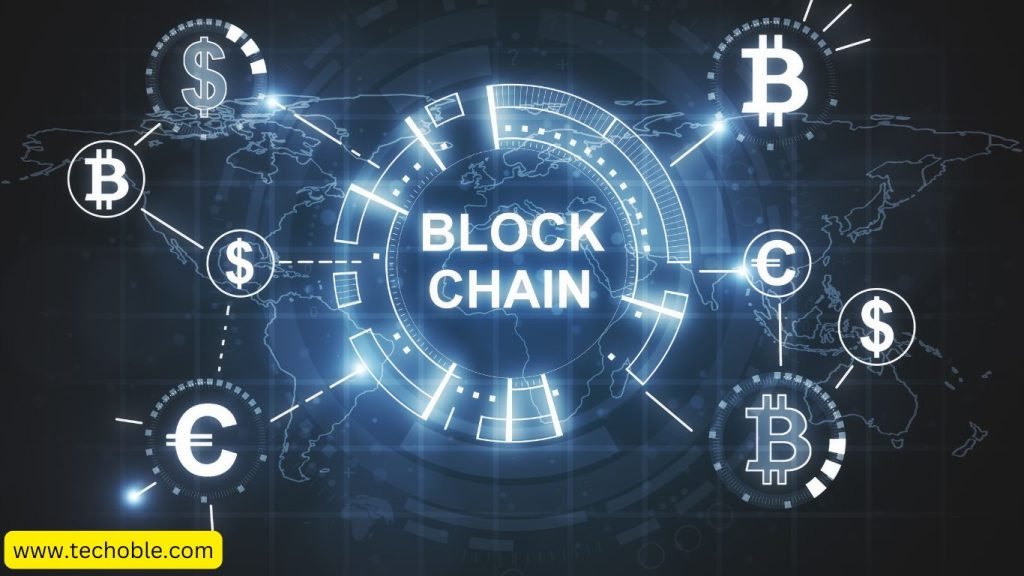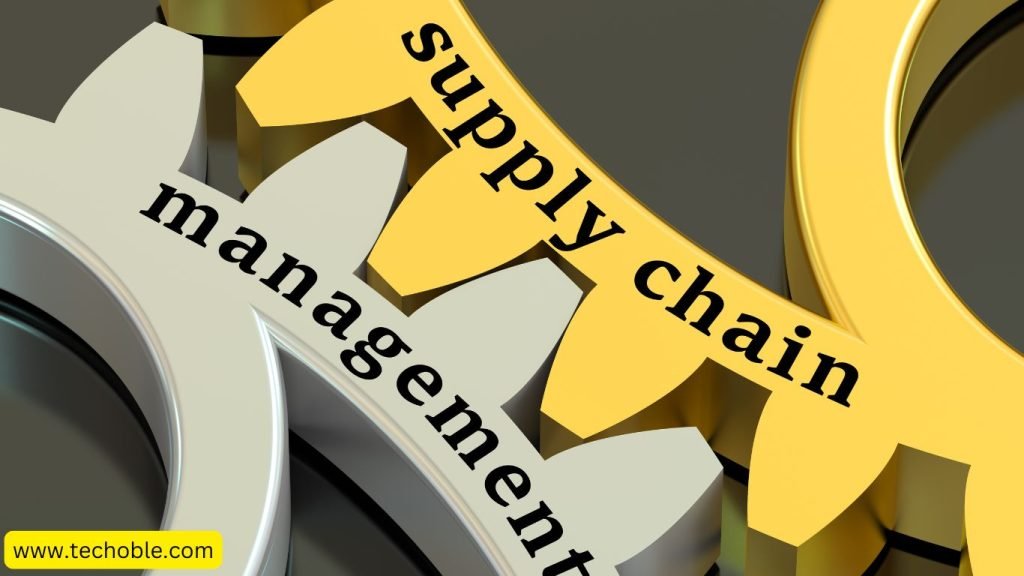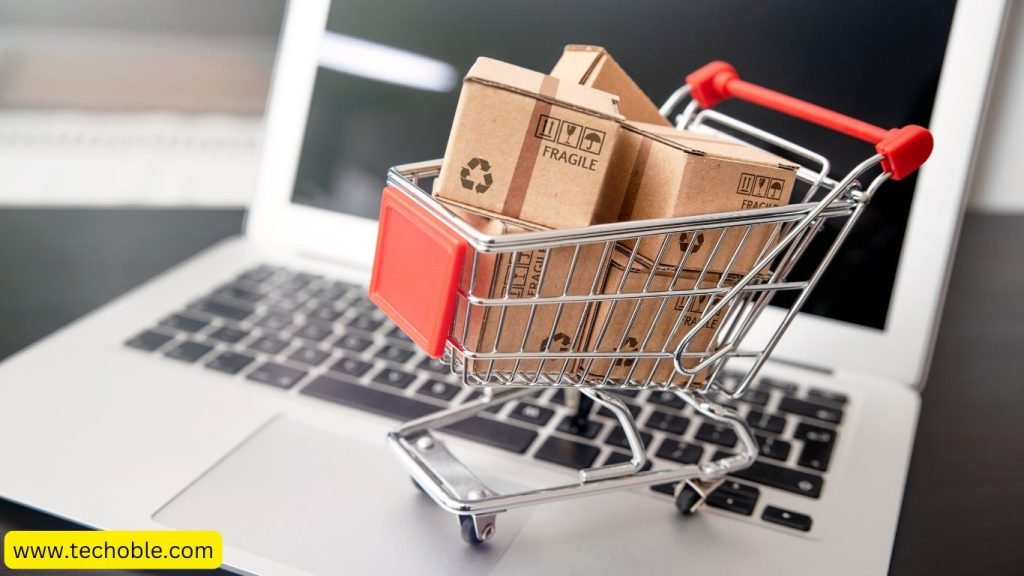 In recent years, blockchain has become a buzzword tied closely to cryptocurrency. However, blockchain technology goes far beyond cryptocurrency, making waves in various fields with secure, decentralized, and efficient solutions. In 2025, blockchain is not just a digital ledger for cryptocurrency but a transformative technology impacting industries such as healthcare, supply chain, finance, and even entertainment. This article dives into what blockchain beyond cryptocurrency really means, exploring key industries where blockchain is making an impact and what the future holds for blockchain technology beyond cryptocurrencies.
In recent years, blockchain has become a buzzword tied closely to cryptocurrency. However, blockchain technology goes far beyond cryptocurrency, making waves in various fields with secure, decentralized, and efficient solutions. In 2025, blockchain is not just a digital ledger for cryptocurrency but a transformative technology impacting industries such as healthcare, supply chain, finance, and even entertainment. This article dives into what blockchain beyond cryptocurrency really means, exploring key industries where blockchain is making an impact and what the future holds for blockchain technology beyond cryptocurrencies.
What is Blockchain Beyond Cryptocurrency?
Blockchain is a secure and decentralized digital ledger. It records transactions in “blocks,” which are connected in a “chain” and distributed across a network of computers. While cryptocurrency blockchain applications are widely known, the same technology can be applied to any field requiring secure, transparent, and tamper-proof transactions. Let’s explore some industries that have embraced blockchain beyond crypto for innovative applications.
1. Supply Chain Management
 Why Blockchain Matters for Supply Chains
Why Blockchain Matters for Supply Chains
Blockchain provides transparency and traceability in supply chains, helping companies track products from origin to consumer. For instance, a grocery store can verify the exact farm where produce originated, boosting consumer trust.
Applications in Supply Chain Management
- Improved Traceability: Tracking the origin and path of goods from producer to retailer.
- Transparency in Operations: Recording every step in the supply chain, reducing fraud and errors.
- Cost Efficiency: Reducing paperwork and manual tracking, which cuts costs.
Example: IBM’s Food Trust blockchain tracks food through the supply chain, helping to manage recalls and reduce food waste.
| Benefits of Blockchain Supply Chain | Details |
|---|---|
| Transparency | Every transaction is logged |
| Traceability | End-to-end product tracking |
| Cost-Efficiency | Less paperwork, lower costs |
2. Healthcare
 Enhancing Data Security and Patient Privacy
Enhancing Data Security and Patient Privacy
Blockchain is crucial for healthcare data management, ensuring secure and private patient records. Unlike traditional systems, blockchain offers secure patient data sharing and helps prevent fraud.
Healthcare Applications
- Medical Records: Patients and doctors access records safely and securely.
- Drug Traceability: Tracking drugs from production to administration.
- Preventing Fraud: Reducing the chances of fraud and counterfeit medications.
Statistic: According to a report by Deloitte, blockchain could save the healthcare industry up to $100 billion annually through streamlined data management and fraud reduction.
| Blockchain Use in Healthcare | Benefits |
|---|---|
| Medical Records | Secure, patient-centered data access |
| Drug Traceability | Reduces counterfeit medications |
| Fraud Prevention | Protects against data breaches and fraud |
3. Finance Beyond Cryptocurrency
 Blockchain’s Role in Banking and Finance
Blockchain’s Role in Banking and Finance
While cryptocurrency blockchain applications dominate finance, blockchain also brings efficiency to banking, insurance, and asset management. It improves transaction speeds, reduces fraud, and offers secure data sharing.
Applications in Finance
- Cross-Border Payments: Faster and cheaper transactions across countries.
- KYC Processes: Know Your Customer (KYC) processes become more efficient and secure.
- Asset Tokenization: Converting physical assets into digital tokens for easier trading.
Example: J.P. Morgan’s Onyx platform uses blockchain for fast and secure interbank transactions, which has already processed billions in payments.
| Financial Use of Blockchain | Benefits |
|---|---|
| Cross-Border Payments | Faster, lower-cost international payments |
| KYC Processes | Enhanced security and speed |
| Asset Tokenization | Simplifies asset trading and ownership |
4. Government and Public Services
 Transforming Voting and Public Records
Transforming Voting and Public Records
Governments are exploring blockchain to improve transparency in elections, identity management, and public records. Blockchain can make these processes more secure and accessible.
Applications in Government
- Voting Systems: Transparent, tamper-proof voting systems.
- Identity Verification: Secure digital identities to access services.
- Public Records: Secure storage of land titles and other records.
Example: Estonia uses blockchain for secure e-residency and national ID management, enhancing digital access for citizens.
| Blockchain in Government Use | Benefits |
|---|---|
| Voting Systems | Prevents election fraud |
| Identity Verification | Provides secure digital identities |
| Public Records | Ensures permanent, secure record-keeping |
5. Real Estate
 How Blockchain is Changing Real Estate
How Blockchain is Changing Real Estate
Blockchain streamlines real estate transactions, which are traditionally paperwork-heavy. It enables tokenization of property, allowing fractional ownership and easier trading.
Applications in Real Estate
- Property Transactions: Reduced paperwork and faster processing.
- Fractional Ownership: Allows investors to buy shares of a property.
- Smart Contracts: Automate transactions based on set conditions.
Statistic: The tokenized real estate market is projected to reach $2.4 billion by 2025 as blockchain facilitates fractional ownership.
6. Media and Entertainment
 Protecting Intellectual Property and Managing Royalties
Protecting Intellectual Property and Managing Royalties
Blockchain in media ensures creators receive fair compensation for their work. It also prevents piracy by recording every transaction involving digital content.
Applications in Media
- Royalty Management: Automatic payment distribution to creators.
- Content Authentication: Verifies ownership and reduces piracy.
- NFTs: Non-fungible tokens allow unique ownership of digital art and collectibles.
Example: Audius, a blockchain-based music streaming service, allows artists to publish music directly, ensuring they receive fair royalties.
| Media & Entertainment Applications | Benefits |
|---|---|
| Royalty Management | Fair and transparent payment distribution |
| Content Authentication | Verifies and protects digital content |
| NFTs | Unique ownership of digital assets |
7. Retail and E-commerce
 Enhancing Trust with Product Authentication
Enhancing Trust with Product Authentication
Blockchain verifies product authenticity, helping brands combat counterfeits. It also improves trust between consumers and brands by providing a transparent history of products.
Applications in Retail
- Product Authentication: Confirms genuine products.
- Supply Chain Transparency: Allows consumers to trace product origins.
- Customer Loyalty Programs: Blockchain-based reward points.
Statistic: Retailers can reduce counterfeit losses by up to 60% using blockchain product tracking.
8. Energy Sector
 Enabling Decentralized Energy Trading
Enabling Decentralized Energy Trading
Blockchain allows individuals to trade renewable energy directly, creating peer-to-peer energy markets and tracking carbon credits.
Applications in the Energy Sector
- Energy Trading Platforms: Peer-to-peer trading of renewable energy.
- Carbon Credit Tracking: Transparent tracking of emissions and credits.
- Grid Management: Decentralized grid monitoring and maintenance.
Example: Power Ledger, an Australian company, uses blockchain for energy trading, allowing neighbors to buy and sell solar power.
| Energy Use of Blockchain | Benefits |
|---|---|
| Energy Trading Platforms | Enables peer-to-peer energy trading |
| Carbon Credit Tracking | Increases transparency in emissions |
| Grid Management | Decentralized grid maintenance |
9. Education and Credentialing
 Blockchain for Secure Credential Verification
Blockchain for Secure Credential Verification
Educational institutions use blockchain to issue digital diplomas, making verification easy and secure for students and employers.
Applications in Education
- Digital Diplomas: Students have lifetime access to verifiable records.
- Skills Verification: Easy verification of certifications and skills.
- Fraud Prevention: Prevents falsification of credentials.
Statistic: Blockchain credentialing reduces background check costs for employers and improves hiring efficiency.
10. Agriculture
 Blockchain in Food Traceability and Fair Trade
Blockchain in Food Traceability and Fair Trade
Blockchain can track crops from farm to store, increasing transparency and helping ensure farmers receive fair compensation.
Applications in Agriculture
- Farm-to-Table Traceability: Tracks the journey of food products.
- Fair Trade Compliance: Ensures fair wages and conditions for farmers.
- Crop Monitoring: Blockchain for data on crop yields and conditions.
Example: VeChain, a blockchain platform, partners with farmers to track food supply chains and ensure quality.
| Agriculture Use of Blockchain | Benefits |
|---|---|
| Farm-to-Table Traceability | Ensures product transparency |
| Fair Trade Compliance | Supports fair wages for farmers |
| Crop Monitoring | Provides valuable insights on yield |
Future Trends and Potential of Blockchain Technology Beyond Cryptocurrencies
As blockchain adoption grows, the technology will continue evolving to meet the needs of various industries. Key trends for the future of blockchain technology beyond cryptocurrency include:
- Interoperability: Blockchains working seamlessly with each other.
- Scalability Improvements: Faster and more efficient transaction processing.
- Regulatory Progress: Clearer regulations enabling more widespread adoption.
- Artificial Intelligence Integration: Combining AI with blockchain for enhanced data analysis and automation.
Quote: “Blockchain technology has the potential to reshape our world by enhancing transparency, security, and efficiency across multiple sectors,” says a report by Deloitte.
Blockchain is far more than just the foundation of cryptocurrencies. As this transformative technology enters industries like healthcare, supply chain, government, and even media, the potential future of blockchain technology looks bright. With enhanced security, transparency, and efficiency, blockchain’s future beyond cryptocurrency is promising, with real-world applications impacting our everyday lives.

 Why Blockchain Matters for Supply Chains
Why Blockchain Matters for Supply Chains Enhancing Data Security and Patient Privacy
Enhancing Data Security and Patient Privacy Blockchain’s Role in Banking and Finance
Blockchain’s Role in Banking and Finance Transforming Voting and Public Records
Transforming Voting and Public Records How Blockchain is Changing Real Estate
How Blockchain is Changing Real Estate Protecting Intellectual Property and Managing Royalties
Protecting Intellectual Property and Managing Royalties Enhancing Trust with Product Authentication
Enhancing Trust with Product Authentication Enabling Decentralized Energy Trading
Enabling Decentralized Energy Trading Blockchain for Secure Credential Verification
Blockchain for Secure Credential Verification Blockchain in Food Traceability and Fair Trade
Blockchain in Food Traceability and Fair Trade